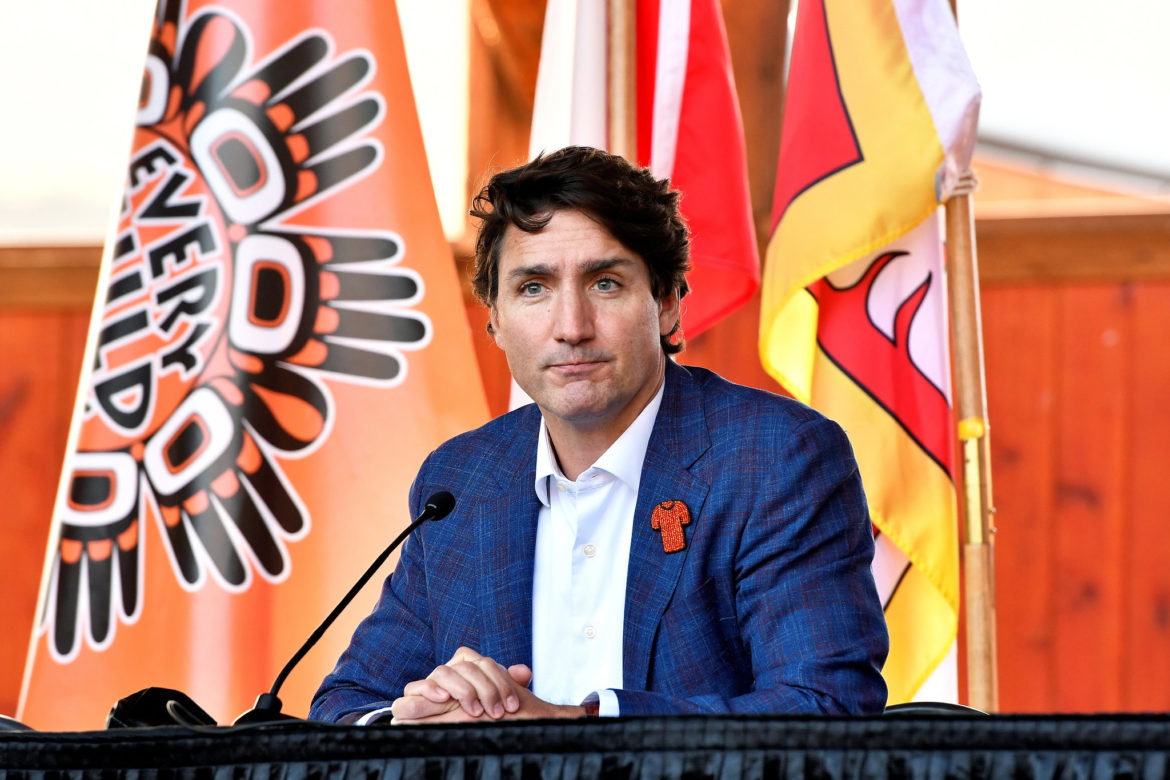Following a tense federal election and a media uproar regarding Canada’s ongoing treatment of Indigenous communities, the spotlight on the Liberal party has been stronger than ever. From the discovery of unmarked graves at residential schools, to the persistent issue of clean water in Indigenous reserves, these issues serve as a ringing reminder of what this country needs to change. During this year’s federal election, Liberal party leader (and current Prime Minister) Justin Trudeau outlined many reconciliation-related goals that his party aims to achieve, as he has done in the past. However, in comparison with the Liberal Party’s 2015 reconciliation objectives, these new objectives look to tackle the current human-rights issues being highlighted in the media, rather than the ongoing legal and government-related issues. The 2021 Liberal Party Reconciliation objectives are as follows: confront the legacy of residential schools, continue the work to eliminate all clean long-term drinking water advisories, act to confront systemic racism against Indigenous Peoples especially in the justice system and health care, launch an Indigenous Urban, Rural, and Northern Housing Strategy, and protect the wellbeing of Indigenous children and families.
While these objectives do touch on some of the crucial aspects of Indigenous-related issues, they are also very broad and do not contain a framework to hold the party accountable and ensure that these objectives are achieved in a timely manner. Unlike the 2015 reconciliation-related statements, which highlighted direct steps the party was going to take (such as abolishing the Indian Act), these objectives fail to mention how the governing party will keep its promises. While the government aiming to “confront the legacy of residential schools” is a step in the right direction, it also begs the question of how they plan to do it, given the ambiguity of their objectives. How will the Canadian government confront the “legacy” of these atrocities, the very same ones they looked to cover up in the past? How are citizens able to depend upon a party to complete such objectives without directly knowing from them how? It is difficult for the public to understand how the party is going to be able to achieve these reconciliation goals — or if they will be able to complete them at all, as they have not provided a clear or general outline of what they are planning to do. This lack of clarity could also lead to problems regarding how prioritized these objectives will be in relation to the other five “Top Priorities” listed, which range from health care to the economy.
Currently, these new reconciliation objectives lack the detail and direction needed in order for substantial change and overall progression by the government to be made. While it is necessary that these objectives be stated, they have little impact if there is no plan that follows in order for these goals to met and for the party to be held accountable. An example of how such policies could be more narrowly defined in order to achieve such goals would be regarding the issue of clean water on Indigenous reserves. Although the 2021 objectives state their mission to rid of such water advisories that currently inhibit the reserves, it would be much more promising if they were able to offer a specific (and hopefully attainable) deadline for when this objective will be met. As of September 24, 2021, there are 45 long-term drinking water advisories on reserves in Canada, and the governing party fails to have a concrete plan of how and when this issue will be solved. Whether it is to be eradicated in two years or five, a specific deadline would reinforce the importance of this objective, and clearly indicate that it is a work-in-progress that the party can be held accountable for. The problem at large here is not that these objectives were made, but the fact that they were made without any clear plan or timeline, which makes it quite easy to be delayed or less prioritized in the eyes of the government.
In addition to the Federal Election, 2021 had another milestone for Canada: the first National Day for Truth and Reconciliation. A day to recognize and reflect upon the struggles and losses endured by Indigenous communities by Canadian Residential Schools, recognized by Canadians across the country, this day was crucial for both the country and its Indigenous communities. However, instead of being present at a ceremony hosted by the Tk’emlúps te Secwépemcs in British Columbia, Trudeau was found to be vacationing with his family in Tofino. While this could be considered a sad coincidence, it may be foreshadowing the party’s lack of priority for such objectives made regarding Indigenous reconciliation. Being present at such a ceremony would not only reference the objective of “confront[ing] the legacy of residential schools” made by the Liberal party, but also show that such objectives were not made lightly and are of importance to our governing party and country. If anything, this ignorant act on a day so important to Indigenous communities and the beginning of the Liberal party’s new term goes to show that perhaps some promises are better left unsaid.
Mayah Esmail is a U2 student at McGill University pursuing a major in Economics and a minor in Psychology. She is originally from Vancouver, BC, and her interests vary from economic policies, feminism, and socio-cultural issues.

